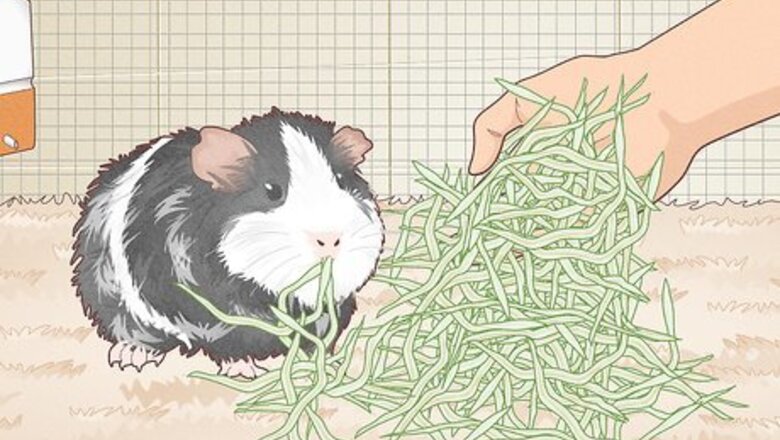
views
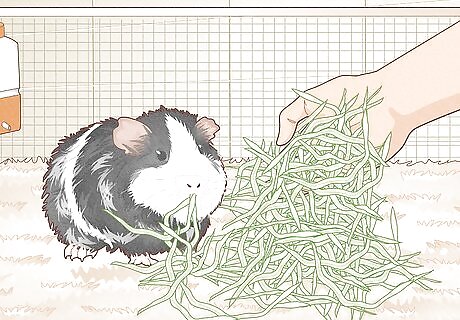
Provide an unlimited amount of hay. Guinea pigs are herbivores with a diet consisting of 80% of grass hay. Hay is extremely important as guinea pigs are constantly eating, and the fibers help them digest their food and keep their teeth trimmed. If you find your guinea pig is regularly hungry, give them more hay, which should keep them occupied instead of consistently eating their pellets or other treats. Timothy, bluegrass, meadow grass, and orchard grass hays are all good options to feed. Do not feed alfalfa hay to guinea pigs over 6 months. Alfalfa is high in calcium and purposely branded for pregnant or nursing sows and pups under the age of 6 months.
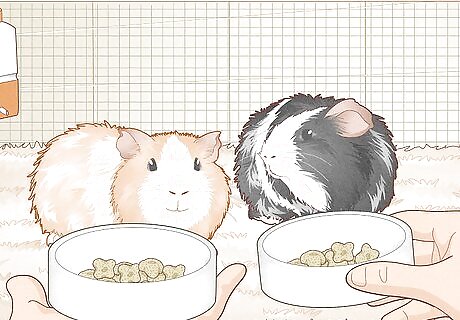
Give your guinea pigs each 1/8 cup of pellets per day. Choose plain pellets that are timothy-based. Avoid muesli or colorful treat mixed feed as these encourage selective feeding, with the treats being high in sugar. KMS and Oxbow are both advised brands. If you have more than one guinea pig, provide their serving of pellets in separate bowls in case one guinea pig decides to eat all the pellets by themselves.
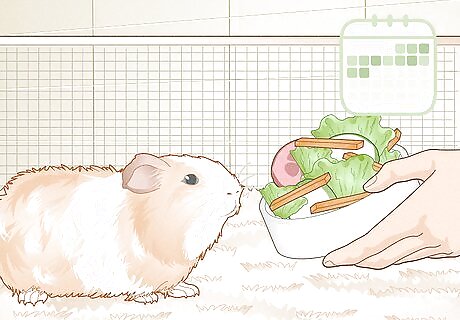
Feed one cup of fresh vegetables and herbs per day. Generally, this is equivalent to a small plateful per guinea pig. Try to choose vegetables that are high in vitamin C, such as capsicums (bell peppers), broccoli, and mustard spinach. Try cos lettuce, tomatoes, celery, cucumber, carrot, spinach, kale, coriander, basil, Brussel sprouts, etc. Avoid avocado as it's high in fat. Iceberg should also be avoided as it contains high water content with little nutritional value. Cabbage is also another vegetable that should be avoided as it's high in calcium and can cause bloating. Be mindful of each vegetable's nutritional value. Some vegetables are high in sugar, such as carrots, with others being high in calcium, such as spinach and kale. If they are fed too much calcium it could lead to health problems with their liver and urine.
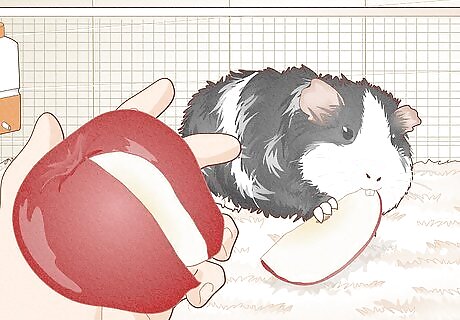
Limit treats. Commercial treats may seem like a rewarding idea for your guinea pigs, but they are high in sugar and contain no nutritional value. If you're going to give your guinea pig treats, feed them fruits such as apples and strawberries. However, keep it to a minimum as sugar can lead to obesity. If you want, you can make your treats. These are healthier than store-bought ones (which you should avoid), but still should be fed very sparingly. If you do buy treats from a store avoid giving them more than once a day. Pea flakes are a better store-bought alternative to other commercial treats, but should still be kept to a minimum. These are used to clicker train guinea pigs.
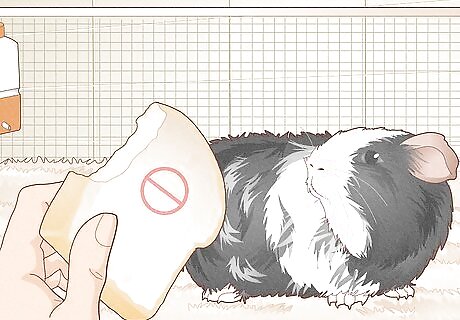
Never feed human foods such as bread and crackers. Guinea pigs are strictly herbivores. While it may seem common to feed guinea pigs bread crusts, this isn't good for them and can throw out their nutritional balance.
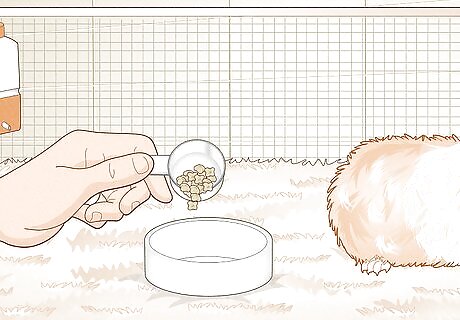
Acquire measuring utensils. If you're unsure of how much you are feeding your guinea pig, it's best to monitor the quantity by measuring them before you feed your cavy. Obtain a kitchen scale and a measuring cup. Pellets can be measured via a quarter of a cup or 1/8. Vegetables may be a bit harder to measure as they cannot be measured in liquid form. Instead of measuring one cup, weigh the vegetables. One cup should be equivalent to half a pound (or 8 oz).
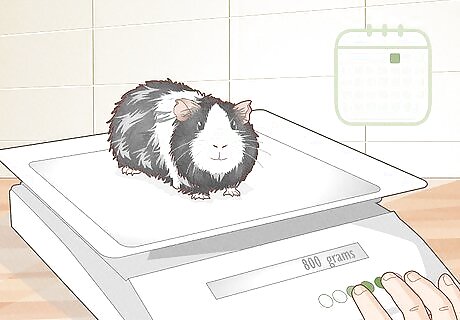
Weight your guinea pig at least every month. The average adult sow (female) should weigh 700 to 900 grams with adult boars (males) on average being 20% heavier at 900-1200 grams. Take into consideration that the weight of your guinea pigs is heavily influenced by factors such as their sex, age, and breed. Do not be considered if your guinea pig is slightly over or under the average weight in grams. According to Guinea Lynx, you should ideally weigh your guinea pigs weekly. Not only to see if they're putting on too much weight but to spot any decline in weight as a symptom of a sudden health issue. Weighing is one of the best ways to monitor your guinea pigs health. To weigh your guinea pig, use a normal kitchen or bathroom scale that fits your guinea pig's whole body. The weight of your guinea pig will determine how much you need to feed them. If they are over the recommended weight they are likely eating too much. Cut down the portion of their pellets and cut out sugary treats altogether, including fruit.


















Comments
0 comment